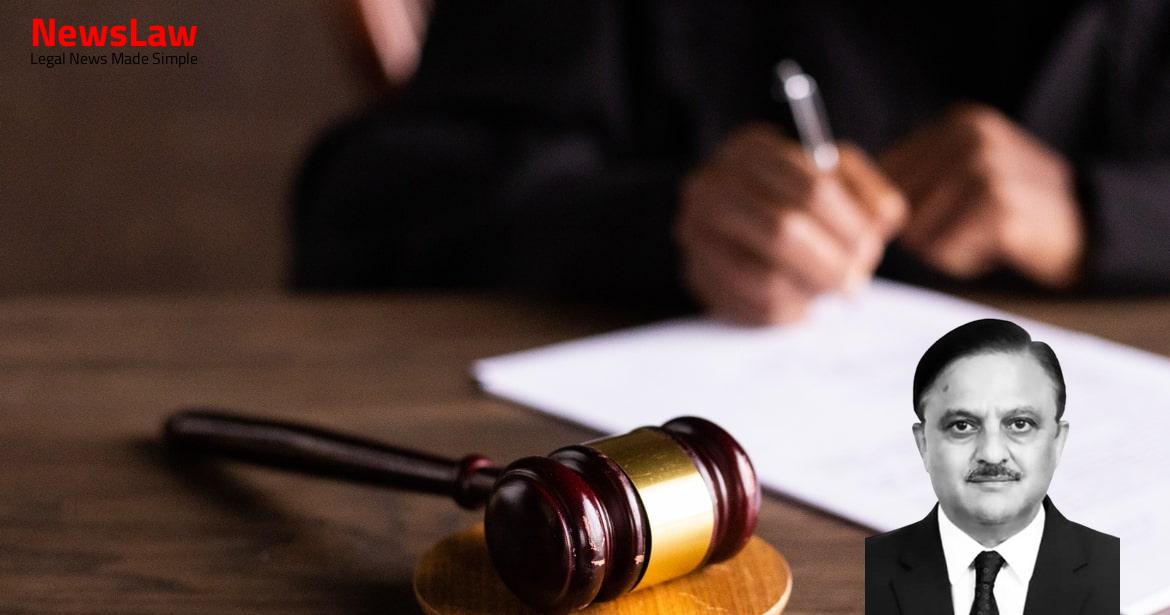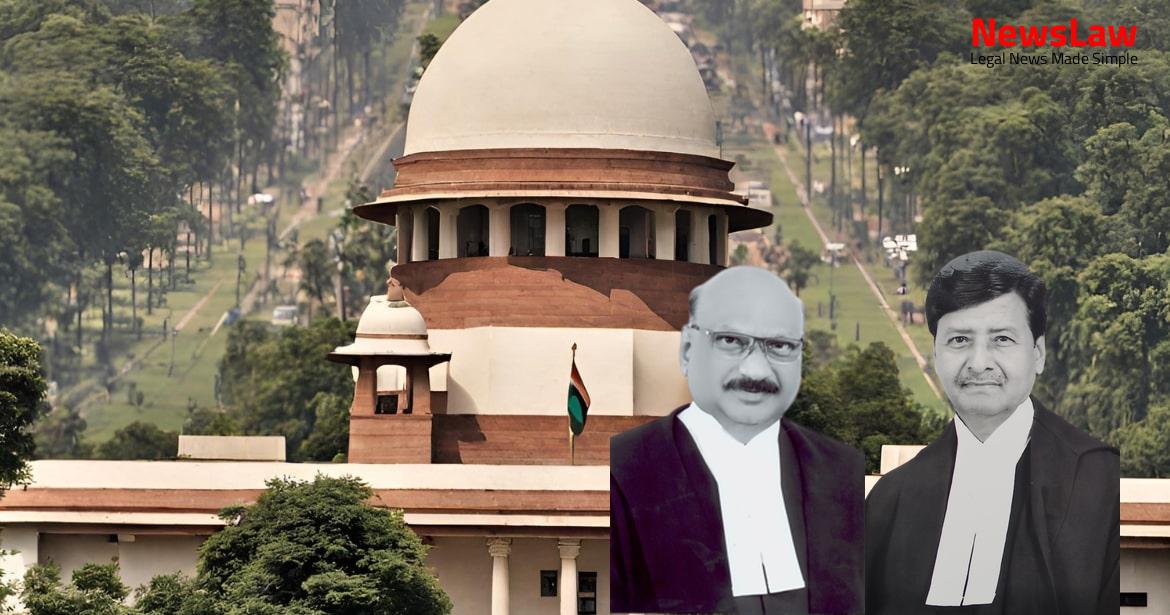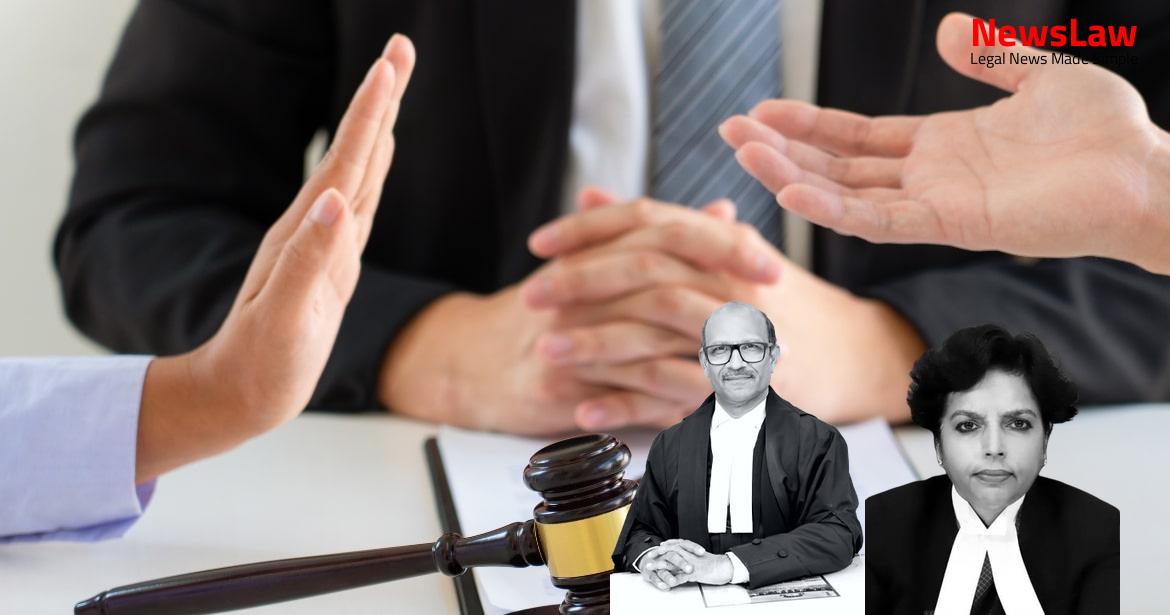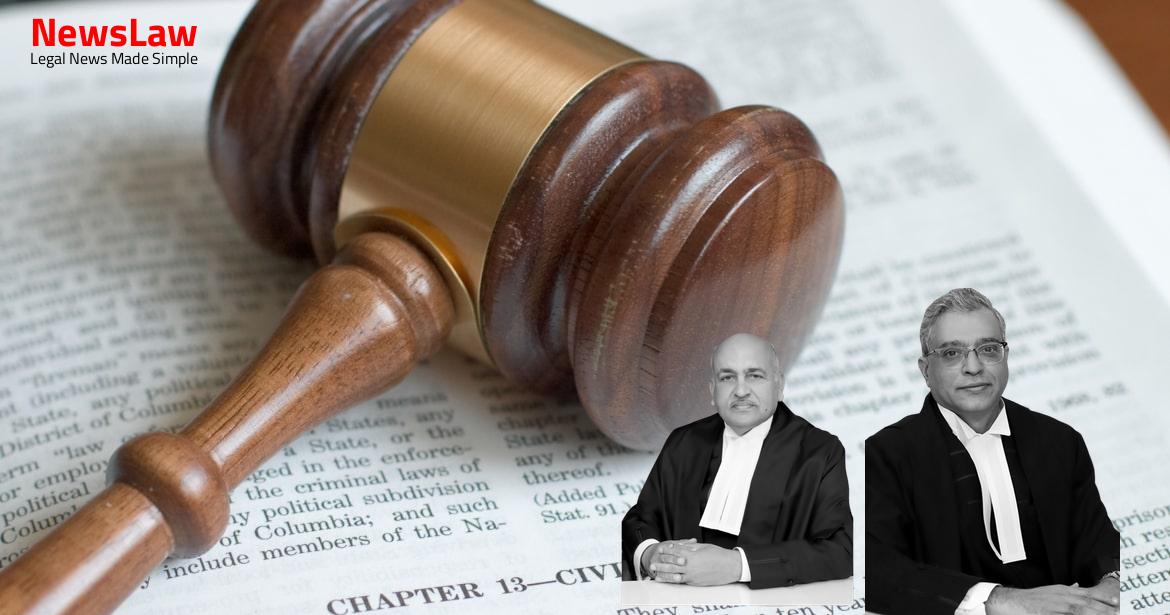In a recent landmark judgement by the Supreme Court of India, the property tax dispute between Avenue Supermarts Limited and Municipal Corporation has been resolved. The court’s decision clarifies the obligations regarding tax payment and refunds in this contentious issue. This judgement is set to have significant implications for property owners and municipal authorities alike.
Facts
- Appellant-Corporation has already refunded excessive property tax to Avenue Supermarts Limited as per the High Court’s direction.
- The High Court directed the Appellant-Corporation to refund a portion of property tax paid by Avenue Supermarts Limited for AY 2015-16.
- Avenue Supermarts Limited challenged the property tax demand raised by the Appellant-Corporation amounting to INR 2,97,02,324/-.
- The property premises were sealed on 21.03.2016 due to non-payment of tax dues by the predecessor-in-interest holder.
- The High Court allowed Avenue Supermarts Limited’s application, stating the respondent cannot be liable for property tax arrears prior to the acquisition of ownership.
- Appellant-Corporation is challenging the High Court’s order to refund the accrued property tax dues.
- The High Court criticized the Appellant-Corporation for charging exorbitant dues from Respondent No 02.
- The inclusion of further interest and penalty on the outstanding arrears, which had been challenged and stayed by the court, was disapproved.
- The Appellant-Corporation was directed to retain INR 14,85,000/- of property tax for the relevant AY 2015-16 and refund the rest to Respondent No 02.
- The refund was to include simple interest at 6% per annum from the date of recovery till the actual payment.
Also Read: Case Summary: Legal Implications for Directors in Company Affairs
Arguments
- Mere deposit of security amount by Respondent Nos. 04 and 05 does not assign liability for tax payment for a period when Respondent No 02 did not own the property.
- Appellant-Corporation cannot impose the obligation on Respondent No 02 to seek a refund from Respondent Nos. 04 and 05.
Also Read: Land Allotment Transparency: Setting Precedent for Equitable Distribution
Analysis
- The Appellant-Corporation, Respondent Nos. 04 and 05, and Respondent No 02 relied on a letter dated 18.01.2016 regarding assurance for clearing arrears of property tax.
- The High Court directed deduction of liability of tax from Respondent No 02 post the purchase date of 03.09.2015 before making a refund.
- The Appellant-Corporation was justified in recovering arrears from Respondent No 02 based on Sections 139 and 140 of the GPMC Act 1949.
- The original owner sold the property to Respondent Nos. 04 and 05 in 2007.
- Different notices were issued for outstanding property tax amounts for various assessment years, leading to challenges and stays on recovery.
- Respondent No 02 acquired the property in 2015 and argued their liability for property tax should start from the date of ownership acquisition.
- Respondent No 03, the lessee prior to 2015, contested tax demands and obtained stays on recovery actions.
- The Appellant-Corporation’s challenge against the refund direction was considered in light of GPMC Act 1949 provisions.
- Key arguments revolved around the property tax liability shift post the ownership transfer and ongoing appeals on previous tax demands.
- The Appellant-Corporation’s recovery attempts faced obstacles due to pending legal proceedings and stays obtained by the lessee.
- An analysis of the factual and legal background elucidated the Appellant-Corporation’s pursuit of recovering arrears from the appropriate liable party.
- The Appellant-Corporation is entitled to recover the money deposited by the Respondent No 1.
- The Appellant-Corporation cannot retain an amount higher than the actual outstanding amount.
- Any excess amount deposited beyond the outstanding amount must be returned to the Respondent No 1.
Also Read: Exclusion of VAT from Taxable Turnover Upheld by Supreme Court
Decision
- The appeals mentioned will be dismissed if they get dismissed.
- The deposited amount will be eventually paid to the Appellant-Corporation if the appeals get dismissed.
- To prevent double payment to the Appellant-Corporation and avoid disruption in pending litigation against demands before 03.09.2015, the order for refund by the High Court is considered justified.
- No costs will be awarded.
- The appeal is dismissed.
- There are no grounds to interfere with the Impugned Order dated 07.07.2016 by the High Court.
- Pending applications, if any, are also disposed of.
Case Title: RAJKOT MUNICIPAL CORPORATION Vs. THE STATE OF GUJARAT (2024 INSC 596)
Case Number: C.A. No.-007873-007873 – 2024



